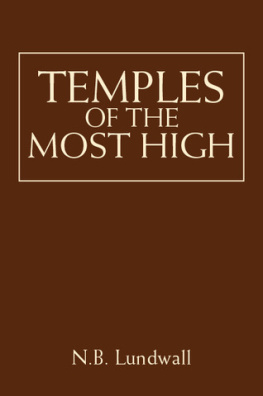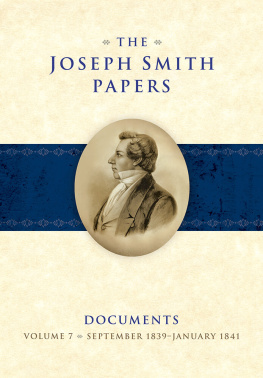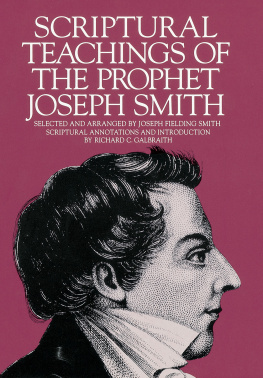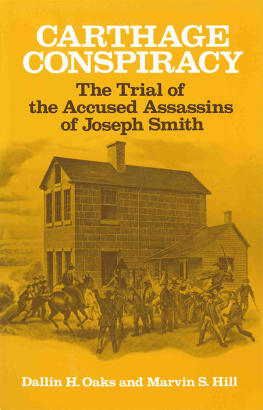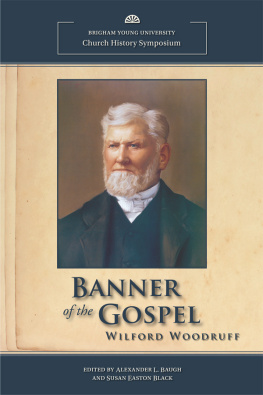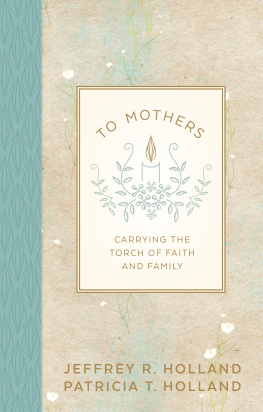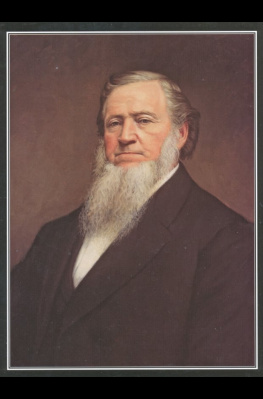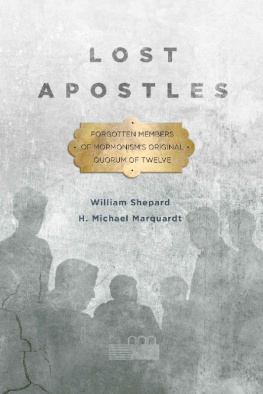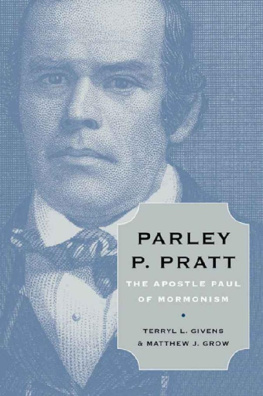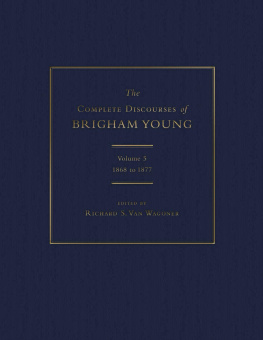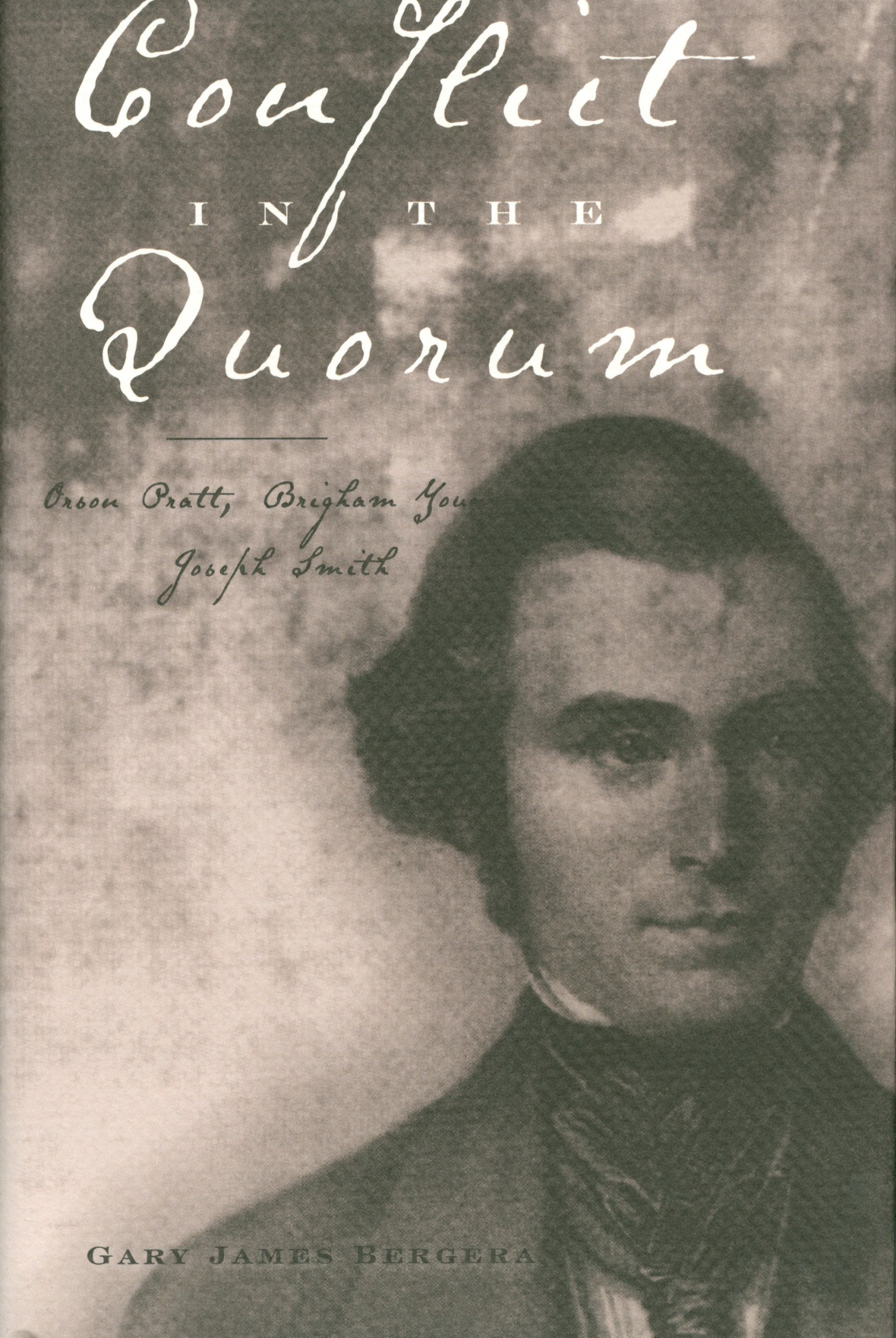Gary J. Bergera - Conflict in the Quorum: Orson Pratt, Brigham Young, Joseph Smith
Here you can read online Gary J. Bergera - Conflict in the Quorum: Orson Pratt, Brigham Young, Joseph Smith full text of the book (entire story) in english for free. Download pdf and epub, get meaning, cover and reviews about this ebook. year: 2002, publisher: Signature Books, genre: Religion. Description of the work, (preface) as well as reviews are available. Best literature library LitArk.com created for fans of good reading and offers a wide selection of genres:
Romance novel
Science fiction
Adventure
Detective
Science
History
Home and family
Prose
Art
Politics
Computer
Non-fiction
Religion
Business
Children
Humor
Choose a favorite category and find really read worthwhile books. Enjoy immersion in the world of imagination, feel the emotions of the characters or learn something new for yourself, make an fascinating discovery.

- Book:Conflict in the Quorum: Orson Pratt, Brigham Young, Joseph Smith
- Author:
- Publisher:Signature Books
- Genre:
- Year:2002
- Rating:3 / 5
- Favourites:Add to favourites
- Your mark:
Conflict in the Quorum: Orson Pratt, Brigham Young, Joseph Smith: summary, description and annotation
We offer to read an annotation, description, summary or preface (depends on what the author of the book "Conflict in the Quorum: Orson Pratt, Brigham Young, Joseph Smith" wrote himself). If you haven't found the necessary information about the book — write in the comments, we will try to find it.
At a meeting of the LDS Quorum of the Twelve in 1860, one of the churchs senior apostles, Elder Heber C. Kimball, complained that Brother Orson Pratt has withstood Joseph [Smith] and he has withstood Brother Brigham [Young] many times and he has done it tonight and it made my blood chill. It is not for you to lead [the prophet], Kimball continued, but to be led by him. You have not the power to dictate but [only] to be dictated [to].
Whenever the quorum discussed Elder Pratts controversial sermons and writings and his streak of independent thinking, the conversation could become heated. As documented by Gary James Bergera in this surprisingly suspenseful account, Pratts encounters with his brethren ultimately affected not only his seniority in the Quorum of the Twelve but also had a lasting impact on LDS doctrine, policy, and organizational structure.
There is not a man in the church that can preach better than Orson Pratt, Brigham Young told the twelve apostles on another occasion. It is music to hear him. But the trouble is, he will ... preach false doctrine.
Pratt responded that he was not a man to make a confession of what I do not believe. I am not going to crawl to Brigham Young and act the hypocrite. I will be a free man, he insisted. It may cost me my fellowship, but I will stick to it. If I die tonight, I would say, O Lord God Almighty, I believe what I say.
You have been a mad stubborn mule, Young replied. [You] have taken a false position ... It is [as] false as hell and you will not hear the last of it soon.
Not infrequently, these two strong-willed, deeply religious men argued. Part of their difficulty was that they saw the world from opposing perspectivesPratts a rational, independent-minded stance and Youngs a more intuitive and authoritarian position. We have hitherto acted too much as machines ... as to following the Spirit, Pratt explained in a quorum meeting in 1847. I will confess to my own shame [that] I have decided contrary to my own [judgment] many times. ... I mean hereafter not to demean myself as to let my feelings run contrary to my own judgment. He issued a warning to the other apostles: When [President Young] says that the Spirit of the Lord says thus and so, I dont consider [that] ... all we should do is to say let it be so.
For his part, Young quipped that Pratt exhibited the same ignorance ... as any philosopher, telling him it would be a great blessing to him to lay aside his books. When Pratt appealed to logic, Young would say, Oh dear, granny, what a long tail our puss has got.
Ironically, Orson Pratt would have the last word both because Young preceded him in death and because several of Youngs teachings and policies had proven unpopular among the other apostles. One of Youngs counselors said shortly after the presidents death that some of my brethren ... even feel that in the promulgation of doctrine he [Young] took liberties beyond those to which he was legitimately entitled. Meanwhile, Pratt continued to hold sway with some of his colleagues. His thoughtfulif ultra-literalisticinterpretations of scripture would also influence such later church leaders as Joseph Fielding Smith and Bruce R. McConkie.
Bergeras nuanced approach avoids caricatures in favor of the many complexities of personalities and circumstances. It becomes clear that the conflict in which these men found themselves enmeshed had no easy, foreseeable resolution.
Gary J. Bergera: author's other books
Who wrote Conflict in the Quorum: Orson Pratt, Brigham Young, Joseph Smith? Find out the surname, the name of the author of the book and a list of all author's works by series.

